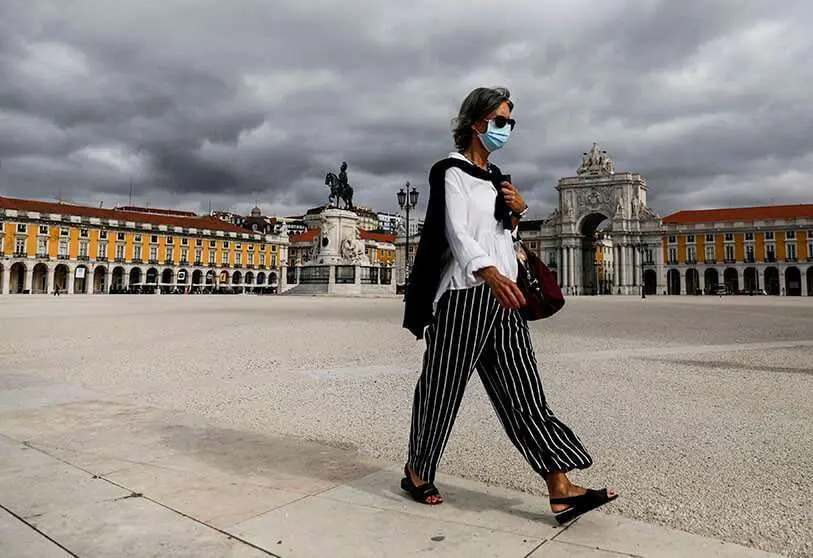Portugal no longer reliable against coronavirus

Since yesterday, the people of Madrid have been looking at themselves in the mirror of Lisbon. Almost twenty districts of the Portuguese capital have been confined to the spread of the virus in a country that until now had been considered a model in the way it dealt with the health crisis. Most of these districts are in the metropolitan area of Lisbon, only one of which is located in the city centre, but the area of influence for all of them is the reference city in Portugal. Almost a million people return in the middle of June to find themselves locked up at home as has happened in Spain and the rest of the countries until a month ago, something that we all believed would never happen again. It is not a case of contagion in a workplace or a family reunion, but the Portuguese are facing a major upsurge of 300 cases a day, which puts them at the forefront of Europe these days, alongside Sweden.
What has happened to make Portugal go from being a safe country with less than a thousand deaths and a very acceptable number of infections per million, to triggering the spread of the virus in just a few weeks? The public's awareness of the problem has been relaxed, despite the authorities' warnings, something that happens not only in leisure activities but also in the daily activity of workers, in their transit to the company or trade and in the use of public transport. Let us not forget that these now closed districts are dormitory towns where employees from sectors such as construction or food reside. The upsurge in cases also has to do with the effort of the Costa government to carry out massive tests on the population, something that countries like Spain have not achieved. When the pandemic began in early March, Portugal was held up as an example of good management and control of the cases of dead and infected. Today it is being looked at sideways instead at a stage when we should be seeing the exit from the tunnel.
The consequences for the time being are fatal for the neighbouring country, which has seen many of the world's capitals prohibit the arrival of Portuguese citizens within their borders, and the border with Spain will be the last to be opened on 1 July. The atmosphere in the country is one of fear of what no one dares say will be a second wave of the virus, despite warnings from epidemiologists and the WHO that it could be here in weeks or months. Extreme individual caution is the most effective measure at this time of the pandemic. The tourist season for this country is going to be very difficult, although there is a Champions League converted into a small club world championship and concentrated in two weeks of August.
The outbreaks in Europe are attacking workplaces where there are conditions for the spread: slaughterhouses like Tönies in Westphalia, the market in Beijing where the most dangerous outbreaks have occurred so far? Animals are being slaughtered every day, and all livestock fluids are flowing into containers handled by employees who are in constant contact with each other. What has happened in Germany, and the situation in cases such as the seasonal workers in Spain is causing blisters due to the degree of exposure of certain sectors to the spread of Covid. Some have dared to speak of new slavery to define these jobs where it is easier to be infected.
At the end of June, Portugal had 40 000 cases and 1 500 deaths. More than twenty-five thousand people have recovered from the disease. Its health services are feeling the stress of several months of fighting the virus and the upsurge that is taking place. For all these reasons, talk of mismanagement by Antonio Costa's government is not in keeping with reality, especially when compared to what has happened with his border neighbour. It has happened to him as it has to Germany or South Korea, which have been considered successful in an initial phase and which are now lame ducks because of the prolonged contagion and deaths. All of this reminds us of the risks that exist in the new phase following confinement, which in some countries they strive to call Orwellianly "new normality".

